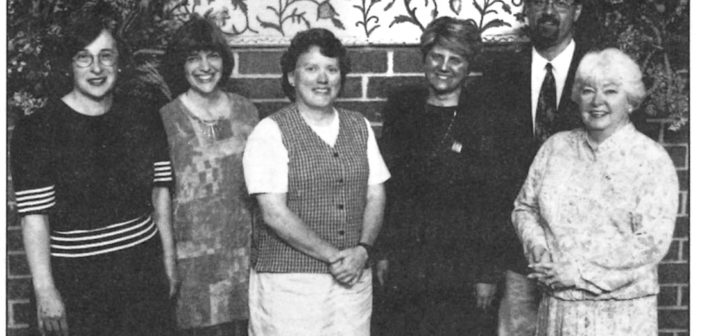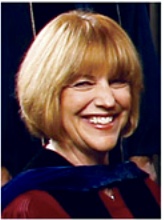Stella Fanega: What is one thing you’ll remember most about North Central?
Francine Navakas: Working with the people, starting with the students; I’ve been here 39 years and I’m still in contact with my first students from my first term — the most powerful experience. Sometimes they give me advice now rather than me giving it to them. I really regret to leave and not being able to connect and build relationships with new students and faculty. One of my goals has been connecting ideas with other people; it’s that interdisciplinary strand that when I came in the 1960s that kind of faded when people began to retire, and one of my interests is building interdisciplinary because it’s key to our future. Connected learning is sometimes what I call it.
SF: How did you balance being a professor and the associate vice president for academic affairs at the same time?
FN: Well over the years, when I first came here, of course, I was teaching a full load; we were smaller then. My advisees were students from around the college. I was just fully immersed with that life, but my teaching load became reduced. Sometimes I would have a half-time teaching load. When I became the associate vice president, I didn’t have a lot of classes — history of ideas, general courses, English 125, 19th century in England, I taught in the master’s program. It’s been tough, and what I have done in between — supervised a number of independent studies, first or second readers for thesis, stayed connected with teaching and working with students — it was really hard to give up teaching because I continue to love it. That’s what energizes me. I also saw that I could make a structural impact on programs that can have further reach than in one classroom.
SF: What is the most important thing you learned as a professor?
FN: There’s so many things. Listen to your students and figure out a path between what you’re imagining happening in the class and their imagining happening in the class. Figure out a way to connect with students. The reason why you need these other perspectives is to get a fresh look. When you lose that, you don’t have the fresh eyes that join you. Enter class with humility and learn from students.
SF: What is the most thing important you taught students?
FN: You have to be open to other perspectives, that ideas matter, close reading, thoughtful analysis, giving a chance to an author. To start thinking about the world in that perspective is the best way to grapple with new ideas.


